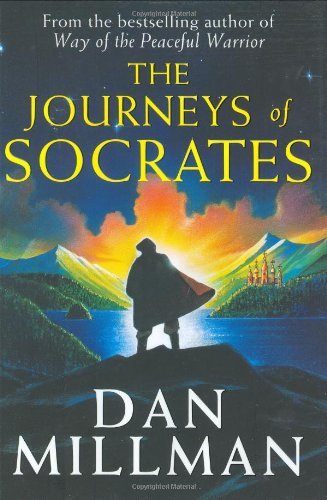
Way of the Peaceful Warrior: A Book That Changes Lives
Book Description
Imagine waking up one day yearning for something greater, only to be drawn into a journey that blends the mystical and the mundane. "Way of the Peaceful Warrior" is a gripping exploration of the path to self-discovery, where the boundaries between reality and philosophy blur under the guidance of a mysterious mentor. As the protagonist confronts life's challenges, profound insights about courage, presence, and the meaning of happiness unfold, creating an electrifying mix of tension and illumination. Will he unlock the true essence of warrior spirit, or will the weight of the ordinary keep him shackled?
Quick Book Summary
"Way of the Peaceful Warrior" by Dan Millman is a semi-autobiographical spiritual novel that follows Dan, a talented yet restless college gymnast, in his quest for greater meaning and fulfillment in life. After a chance encounter with an enigmatic old man, whom he dubs Socrates, Dan is thrust into a transformative journey blending Eastern philosophy, psychological insight, and physical discipline. Through intense spiritual training and life lessons imparted by Socrates, Dan confronts his fears, anxieties, and misconceptions about happiness, ultimately learning that true peace and fulfillment come from living fully in the present moment. The book offers profound guidance for readers seeking mindfulness, inner strength, and a deeper connection to themselves and the world.
Summary of Key Ideas
Table of Contents
The Power of Presence and Mindfulness
Dan Millman’s journey begins during his days as a college athlete where, despite outward success, he experiences an existential void. Dissatisfied with the fleeting happiness from accolades and physical pursuits, Dan senses that life holds deeper truths beyond material achievement. This restlessness sets the stage for a chance late-night encounter at a gas station, where he meets a mysterious and wise old man he calls Socrates. Their unusual friendship quickly evolves, as Socrates becomes both mentor and spiritual challenger, urging Dan to question his assumptions and awaken to a greater awareness of himself and reality.
Transcending Ego and Illusion
Under Socrates’ sometimes harsh, sometimes tender guidance, Dan learns key spiritual principles, most notably the importance of being present. Socrates teaches Dan that dwelling on the past or anxiously anticipating the future only breeds suffering. Through mindfulness exercises and demanding physical tasks, Dan discovers the joy and peace that lies in embracing each moment with attention and acceptance. The book emphasizes that enlightenment is found not in renouncing ordinary life, but in engaging wholly with it.
Mentorship and Acceptance of Guidance
Dan’s journey is not without struggle. Emotional roller coasters, moments of doubt, and resistance to Socrates’ paradoxical teachings fill much of the narrative. Socrates challenges Dan’s ego, showing him how attachment to identity, pride, and intellectual ideas only clouds true perception. Through his trials, Dan confronts issues like fear of failure, unhealthy desires, and the realization that both pain and pleasure are transient. Socrates repeatedly pushes Dan to let go of control and embrace uncertainty.
Embracing Adversity as Growth
The thread of mentorship is central throughout the story. Socrates models the path of the Peaceful Warrior, blending strength with serenity and teaching through riddles, discipline, and genuine care. All the while, Dan learns to accept guidance, eventually moving from skepticism to trust. This dynamic reflects the necessity of humility and openness in personal growth, suggesting that transformative insights often require surrendering one’s defensiveness and preconceptions.
The Path of the Peaceful Warrior
As Dan approaches a spiritual breakthrough, he recognizes that true warrior spirit lies not in force, but in resilience, compassion, and presence. Embracing adversity as a vehicle for growth, he learns to find meaning not in external victories, but in the continual deepening of self-awareness and intentional living. The book concludes with a sense of integration—Dan’s inner and outer worlds align, and he discovers an enduring sense of peace anchored in the eternal now.
Download This Summary
Get a free PDF of this summary instantly — no email required.





